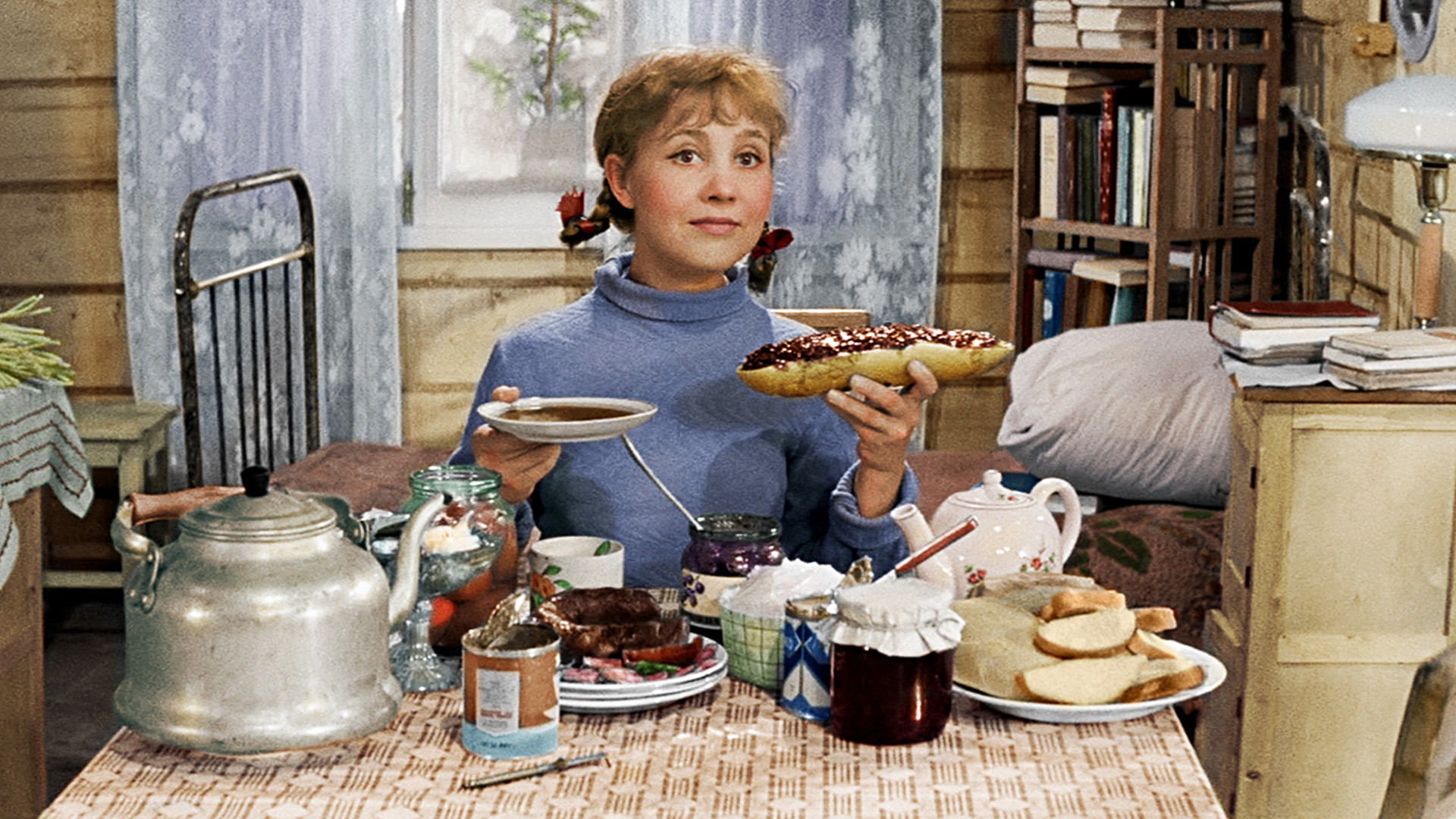
Tea was adored in Imperial and Soviet times, and it hasn’t lost its popularity yet. Be it lengthy tea parties bringing folk around a big table or a quick visit for a cup of tea – they were both common. All these traditions, of course, were reflected in popular culture – let’s watch how the heroes and heroines of Russian films take their tea.
A rather nasty postman from popular Soviet cartoon "Prostokvashino" immediately begins to relent after an invitation to have a cup of tea. He endlessly drinks tea at the cat Matroskin’s house, and moreover, eats up almost all the candies - displeasing all the inhabitants of the house.
This lady looked exactly the same as a woman from the famous painting by Boris Kustodiev "The merchant's wife at tea".
She sits at an outdoor table in her chair, as if it is a throne. Everyone is pacing around her in servility.
Tosya, the heroine of the film of 1961 can be considered to be a real feminist. While other girls from her construction brigade are only dreaming of marriage, she prefers to stay alone, eat cookies and halva, so that no one can criticize her for these guilty pleasures. Her giant sandwich with jam and tea from a saucer almost became a symbol for simple human happiness in the USSR.
A countryside tea party on the terrace or outdoors is a classic scene. Therefore, the film, based on one of Anton Chekhov’s novels, shows all these wonderful paraphernalia: a fine tablecloth, bowls of homemade jam and the special teaware glass set and cups.
The daughter of a crime lord (though, she is sure that her dad is a scientist) comes to a dacha (country cottage), where his associates, whom she takes as scientists also, remain at large.
She brings a cake with her and this is an illustration of another Russian tradition: if you go to visit someone, be sure to bring something “for tea” with you.
In films of life during the NEP (New Economic Policy) era, the heroines flaunt modernistic dresses of the 1920s, and they don’t want to miss classic tea party with a samovar. The absurdity of this idle scene is doubled by the police coming to take the hero, whose wife will immediately begin to pack all his things, and then sell their property.
This iconic and extremely funny film shows the “high moral” relations between a translator Margarita Pavlovna, her intellectual ex-husband Lev Khobotov and her current proletarian husband Savva Ignatich. This "Triple Alliance" often drinks tea together surprising the neighbors in their communal apartment.
If using any of Russia Beyond's content, partly or in full, always provide an active hyperlink to the original material.
Subscribe
to our newsletter!
Get the week's best stories straight to your inbox